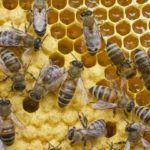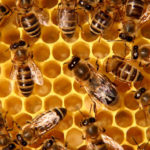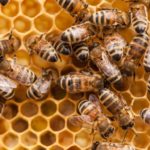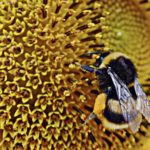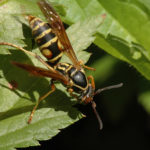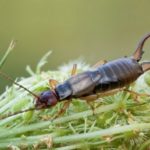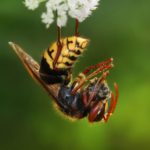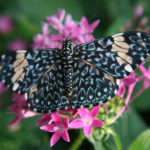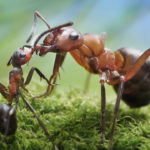Honey bees
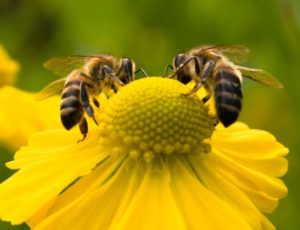 Honey bees have five eyes. It would seem that this should allow them to see with a higher level of clarity than the level that is available to other animals, but this is not so, more precisely not quite so. Bees have two big eyes on each side of their heads and three additional, more primitive eyes that are located in the center of their head to help them in flight. Nevertheless, bees distinguish very few colors.
Honey bees have five eyes. It would seem that this should allow them to see with a higher level of clarity than the level that is available to other animals, but this is not so, more precisely not quite so. Bees have two big eyes on each side of their heads and three additional, more primitive eyes that are located in the center of their head to help them in flight. Nevertheless, bees distinguish very few colors.
Experts still can not agree on what colors bees distinguish, but believe that bees-colored colors should basically be in the green-blue color spectrum with the addition of some yellow and orange hues. This optical range of the spectrum is 300 to 650 nanometers, and the wavelength of light that people see is 400-800 nanometers. Such optical spectrum of bees completely excludes red color. It is possible that the bees see black instead of red.
So what is the incredibly adaptive function that helps bees to fill a narrower range? They can see ultraviolet light that is invisible to humans. Bees use this spectrum, which is concentrated in the center of the flowers as a guide to their goals. If they are deprived of the opportunity to see ultraviolet light waves, bees lose all interest in collecting nectar, unless they are forced to do so by hunger.
Marriage rituals of bees are quite terrible – they can lead to castration and eventually to death. Drones, whose sole purpose is to fertilize the queen, suffer a heavy loss of their copulatory organ, which remains inside the queen. This method is believed to ensure the success of reproduction by sealing the sperm inside the queen and preventing further mating.
However, proceeding from the fact that the next drone, who will fly to the queen, will remove the reproductive organ of the previous male and continue the process of fertilization, for many males such a process is useless. Drones die quickly because their stomachs are torn. Even if they survive by fulfilling their purpose, the wounded drones are thrown out of the nest. The queen retains the sperm and never mates again.
